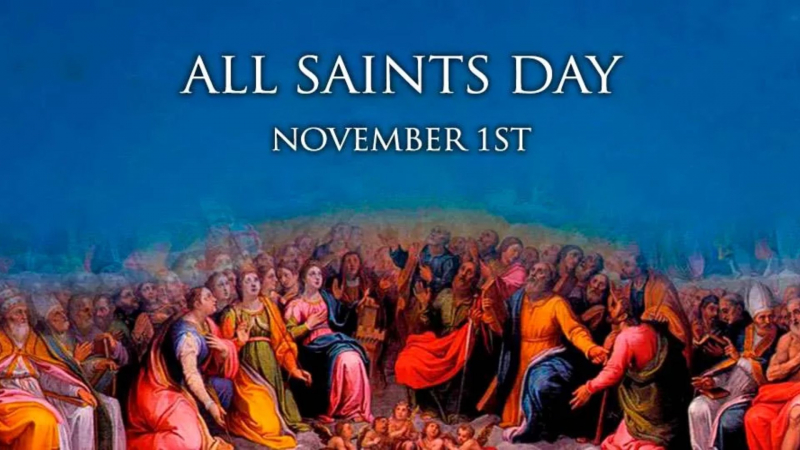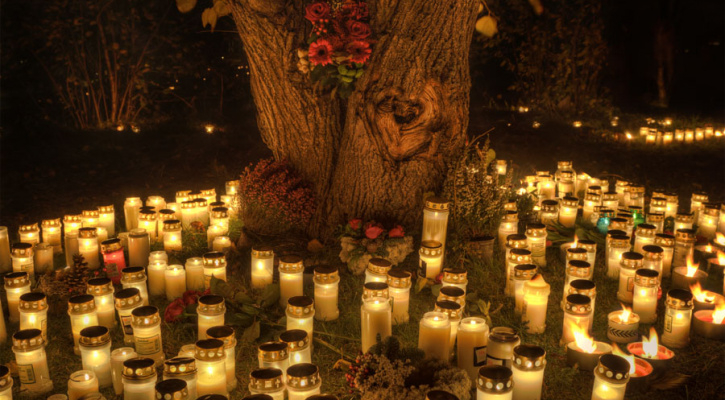All Saints' Day

The origin of the modern English name Halloween can be found in medieval Christianity. The Middle and Old English words for holy are where the word hallow comes from. It also has the noun meaning of saint. The day before All Hallows' Eve, when an evening mass was held, was All Hallows' Eve, and it was the Christian holiday we now know as All Saints' Day. Eventually, that three-word name was abbreviated to Halloween.
Pope Boniface IV dedicated the Pantheon in Rome to all Christian martyrs on May 13, A.D. 609, and the Catholic feast of All Martyrs Day was established in the Western church. Later, Pope Gregory III expanded the festival to include all saints and martyrs and moved the celebration from May 13 to November 1.
By the 9th century, Christianity's influence had spread into Celtic lands, gradually blending with and supplanting older Celtic rites. The church declared November 2 All Souls' Day, a day to honor the dead, in A.D. 1000. Today, it is widely assumed that the church attempted to replace the Celtic festival of the dead with a related, church-sanctioned holiday.
Similar to Samhain, All Souls Day was observed with large bonfires, parades, and dressing as saints, angels, and demons. The holiday known as All Saints' Day is also known as All-Hallows or All-Hallowmas (from the Middle English word all-holowmesse, which means All Saints' Day), and the night before it, known as Samhain in the Celtic religion, started to be called All-Hallows Eve and then, eventually, Halloween.









